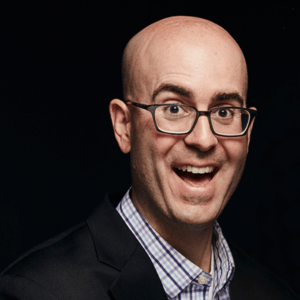by Jenny Williams
Jenny was just 11 years old when she learned what a brain tumor diagnosis meant and how it would affect her and her family.
Her dad was diagnosed with a grade III oligodendroglioma, a fast-growing brain tumor. When she should have been thinking about hanging out with her friends and school, she had to brace herself for the possibility of losing her dad to a brain tumor.
“My dad’s brain tumor journey had a traumatic impact on me as a child,” said Jenny. “As a kid, I’d think about all the normal things you’d do with your parents and how that could be taken for granted. I couldn’t help but be jealous of other kids who had two healthy parents.”
She recalls seeing her once vibrant 38-year-old father thin and immobile on the hospital bed after brain surgery. “It was scary to think that you might lose your parent — we were told he might have just a couple years.”
Jenny’s dad lived a full life for 19 years after his initial diagnosis, Jenny is happy to report. “After the initial scary phase of treating the brain tumor and then seeing my dad was okay and managing things, it changed my perspective on living with cancer. This helped me when I was diagnosed with brain cancer.”
At 25, Jenny was diagnosed with the same brain tumor as her dad — an oligodendroglioma — a rare occurrence for this tumor type to be found in a family going from one generation to the next. When she realized that she had brain cancer, after being healthy all her life, it devastated her. Jenny broke down and let all her emotions — anger, fear, disappointment —run flat out. Her mom found her crying on her bed, and offered her the words she needed to keep going.
“My mom said, ‘Jenny, this doesn’t change who you are. You are still the daughter I raised and love. You just have to go to the doctor more often than others.’ She helped me realize that brain cancer doesn’t define who you are, it just makes you stronger.”
The cause of oligodendrogliomas are unknown at this time, but certain gene changes passed down through families have been linked to a higher risk of developing oligodendrogliomas.1 About five percent of brain tumors could be linked to hereditary genetic factors or conditions. Scientists have also found “clusters” of brain tumors within some families without a link to these known hereditary conditions. Studies are underway to try to find a cause for these clusters.2
With her mom’s words of wisdom and support, and seeing how her dad lived well for years after his initial diagnosis, Jenny learned to thrive. In fact, she’s become a positive force for others in the brain tumor community. Using her graphic design skills, Jenny won a design contest for the national t-shirt worn by thousands of participants in the 2016 ABTA Breakthrough for Brain Tumors 5K Run and Walk nationwide events. She also found her passion for helping brain tumor patients by volunteering as a mentor and fundraising for brain tumor research, as well as lending her voice to raise awareness of brain tumors.
Each person Jenny’s engaged with has come away with newfound hope.
For the last two years, Jenny has been Heeseon’s mentor through the ABTA CommYOUnity Connect program, a nationwide mentorship program. Jenny’s mentee has often counted on Jenny’s advice to help her live life after a brain tumor diagnosis.
“I am lucky to have Jenny as my mentor – she’s had a similar tumor as I did, and we’re about the same age, which helped us to connect on things like how to manage relationships with the condition,” said Heeseon. “Hearing someone else’s story inspired me in a way that I also can thrive after going through surgery, radiation and chemotherapy.”
We now know that Jenny and her dad’s similar brain tumor diagnosis is rare, and studies are still being conducted to understand the causes of brain tumors. Since 1976, the ABTA has funded more than $32 million in brain tumor research of which more than $1 million have focused on low-grade tumors like Jenny’s.



















